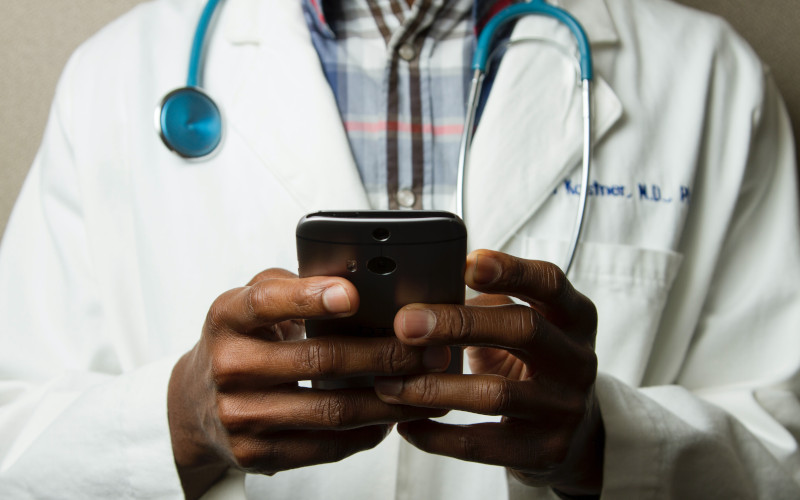Why You Need to Hire a Medical Director of Development
Samantha Hunter
Published: 07/02/2021

Photo by National Cancer Institute on Unsplash
Who better to connect with potential donors than someone who has experience serving patients directly? For that reason among others, the role of medical director of development is gaining popularity among philanthropy teams. But hiring and creating a brand new, director-level position can be daunting.
Here’s what you need to know about why this position’s important, the value it can bring, and what an ideal candidate will look like.
Why should you prioritize this role?
Hiring for a medical director of development sends a strong signal internally and externally about the importance of philanthropy. By selecting a highly regarded medical professional to step into this position, it will raise the profile of the philanthropy department and will also show the importance of having someone who understands the clinical side of the business.
Typically the position is funded by the development office or foundation and they would report directly to the chief executive officer (CEO) with a dotted reporting line to the chief development officer (CDO). This will reinforce the importance of philanthropy to the organization as a whole. By being part of the CEO’s leadership team, they will be viewed as someone who has influence at the highest levels of the organization.
Direct collaboration with the CDO, senior development leadership, and CEO is also important when interacting with donors and prospective donors. Donors will want to know that the medical director of development is either a research scientist, allied health worker, or a clinician and that they have direct access to leadership and the thinking of the institution. This is particularly important when it comes to large donors.
What value can they bring?
Their main focus should be to reinforce the importance of philanthropy at the highest leadership levels. If an organization hasn’t historically had a strong culture of philanthropy, and then someone steps into the medical director for development position, it can elevate the culture almost instantaneously. Especially if they are someone who has a strong organizational reputation already.
Hiring someone for this role can also have a big impact on retention. During what’s being called the “Summer of Resignations,” this is an important point. They should aim to partner with development professionals at every level. As I mentioned earlier, hiring for this role often signals that the work of the philanthropy team is extremely important to the business. It shows people at all levels within the philanthropy team that the work they are doing matters and is important.
Additionally, bringing a clinical lens to fundraising can help further articulate funding possibilities and gift impact to prospective donors. They can collaborate with gift officers to educate them about complex institutional funding needs and priorities. And when necessary, they can serve as a mediator between development officers and clinicians or researchers which can be a tricky needle to thread.
So who is an ideal candidate?
An ideal medical director of development is someone who is widely respected by medical professionals and leaders across the organization. Clinical background in some sense is a must, so someone who was a researcher, a clinical specialist, or another type of clinical leader at the organization.
They should also have a keen sense of the mission and the priorities of the organization at a high level. And they should be able to connect the mission to key funding priorities within the hospital or health system. Having that understanding is especially important for articulating the impact that philanthropy can have on addressing funding priorities.
Like with all roles in the philanthropy department, they need to be able to successfully interact with prospective donors and play a role in securing major, principal, and transformational gifts. To do this successfully, they have to be patient with prospective donors and their families. Many potential donors seek personal fulfillment through their own charitable giving, so understanding that underlying motivation is key. Adding on that additional layer of personal interaction with potential donors is often what motivates people to make stretch gifts that can be aligned to particular funding opportunities.
Finally, the ability to work closely with development staff is crucial. Many clinicians have often had to be more assertive in their clinical roles when making decisions on behalf of patients. While this is one of their greatest strengths, it can make it more challenging to find the right fight for this position. You need someone who has both the assertive approach in a clinical setting, but also knows how to adapt their communication and work styles to work with development staff.
Though a medical director of development is a newer role that many organizations haven’t invested in yet, it’s one that can have a lasting impact on the philanthropy department and can make a significant difference in major gift fundraising.